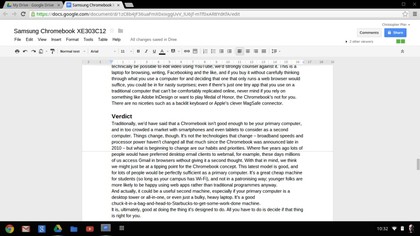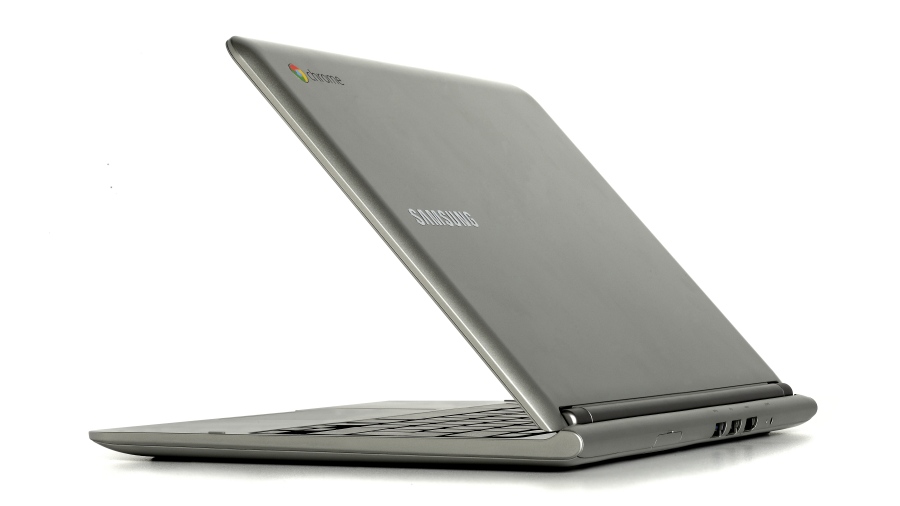TechRadar Verdict
Pros
- +
Cheap
- +
Light
- +
Simple to use
- +
Secure
- +
Reasonable keyboard
Cons
- -
Web apps only
- -
Some build issues
- -
Lacklustre screen
- -
No 3G option in the UK
- -
Insufficient power for HD or gaming
Why you can trust TechRadar
This is technically the fifth iteration of the Google Chromebook – so long as you count Google's own CR-48 prototype.
Despite being the fifth Chromebook, this Samsung Chromebook (formerly known as the Series 3 XE303C12) shouldn't be confused with the Samsung Chromebook 550
If you know about Chrome OS already, you'll know that this laptop isn't like mainstream Windows laptops or even machines such as the Apple MacBook Air or the new 13-inch MacBook Pro with Retina Display.
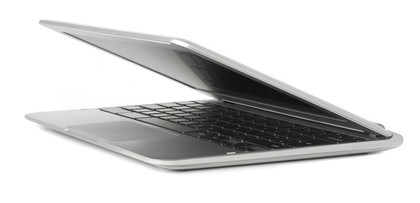
It doesn't run a conventional operating system such as Windows 8, Mac OS X Mountain Lion or even a straight Linux distro such as Ubuntu.
Instead, it is essentially a computer that does one thing: run a web browser.
In this case, of course, the web browser in question is Google Chrome.
Deciding whether or not the Samsung Chromebook is right for you is actually really easy. The first thing you have to know is that it's cheap. Really cheap.
Sign up to the TechRadar Pro newsletter to get all the top news, opinion, features and guidance your business needs to succeed!
At a launch price of £229/USD$330/AU$319, it undercuts most conventional laptops, and is cheaper even than the new iPad mini – though it's more expensive than the low-end Android tablets such as the Google Nexus 7 and Amazon Kindle Fire HD.
That's only part of the decision, however.
The other – indeed, main – thing you have to consider is whether you can live with a laptop that only runs everything in a browser, and therefore, with some caveats, depends on being connected to the web at all times over Wi-Fi.
It's not hard to decide if this is something you can live with; take a moment, close your eyes, and think whether what you mostly do on a computer is done through a browser – or could be.
Because while you can install apps from the Chrome Web Store they're not really applications or programs as most of us would recognise them.
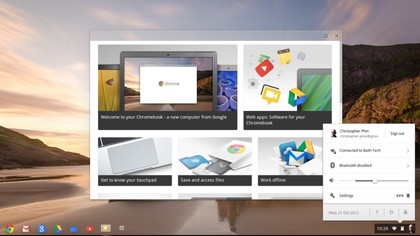
In fact, they're little more than links that sit in your launcher and point to URLs on the web. (Actually, it's a little more complex than that; web apps can, if their developers implement it, add extra features such as using local storage on your Chromebook, rather than solely depending on storage on the servers of the companies whose services you're using.)
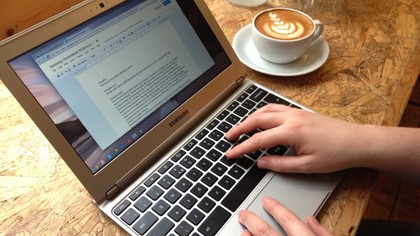
Regardless of the technical caveats, however, it remains true that you can't install, say, Microsoft Office or Adobe Photoshop Elements on a Chromebook. That's not what the Chromebook is about.
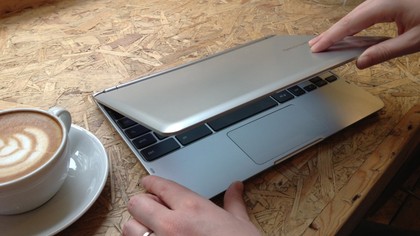
It's a slim, light, cheap, long-lasting little laptop that, partly because really the only thing it does is run a web browser and isn't based on Windows, is very secure, and if you live your life in web apps such as Facebook and Google Docs (or think you could), or especially if you are already immersed in the Google ecosystem of Docs, Gmail, Calendars and more, it's worth considering.
It comes with 100 GB of Google Drive free for 2 years.
